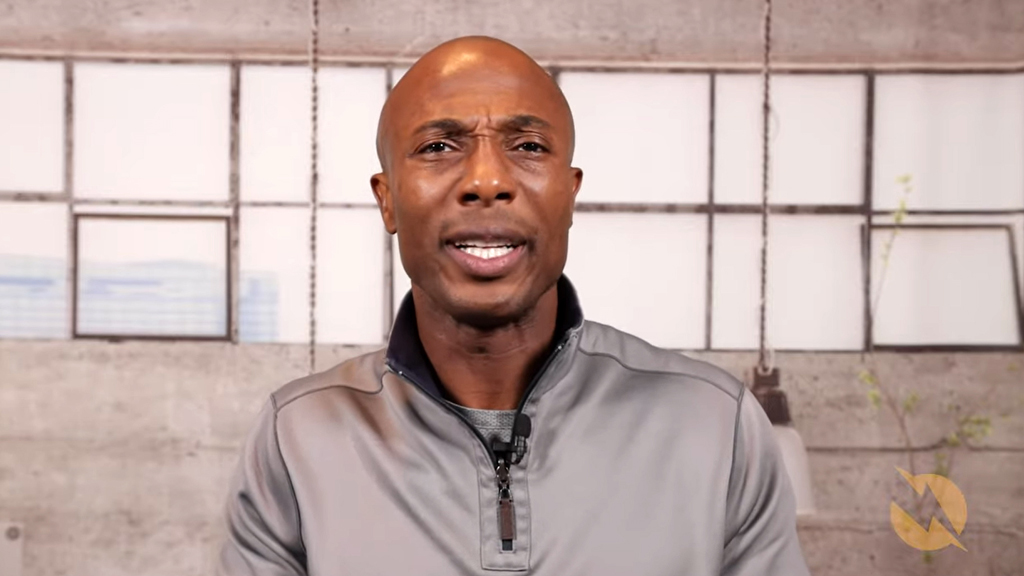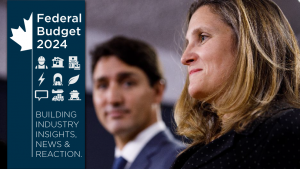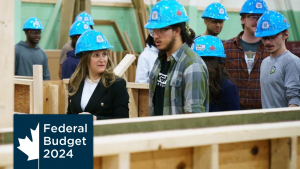The Electrical Contractors Association of Ontario (ECAO) is partnering with former NFL player Alex Willis and his corporate training firm Leadership Surge in a bid to boost leadership skills related to diversity and inclusion among its members and eradicate racism in workplaces.
ECAO executive director Graeme Aitken explained the ECAO’s Diversity and Inclusion Advisory Committee, formed in 2020, had cast about for initiatives to tackle racism and counter the reputation construction has of unwelcome workplaces, notoriety that drives away talent at a time when electrical contractors desperately need new skilled workers and leaders.
Aitken has observed Willis in action at various National Electrical Contractors Association meetings and they reconnected to develop a plan for Ontario contractors.
“We think this is a tremendous beginning,” said Aitken, noting the focus will be on culture change among leaders. “I am genuinely hyped about beginning this awakening with Leadership Surge and our members.”
The 12-month program kicks off Jan. 26 at ECAO headquarters in Toronto and will be followed by a half-dozen other virtual and live sessions consisting of workshops, webinars, assignments and check-ins.
Willis will be offering a tailored program called Empower U that will address the specific needs of Ontario workplaces, which he acknowledged differ in several respects from those in the U.S., but will encompass universal agendas such as recognizing bias, establishing trust and developing empathy and respect.
“I’m a former football player, so I have the team concepts of playing football in college, playing football in the NFL,” said Willis, who last played for Tampa in the NFL under renowned coach Tony Dungy in 2001. “If you take the team approach you can bring everybody on board.
“We can do that and all of a sudden people begin to have these ‘a-ha’ moments and we really begin to see magic happen.”
Initial sessions will see Willis challenging executives to create “phenomenal” working environments, he said, and ultimately create an environment of belonging.
“When I feel like I’m on this team, that’s more than diversity and inclusion, that’s more than colour, gender. I feel like I belong here.
“Now all of a sudden you get the best of me, of this team, my best effort, my best ideas, simply because I feel like I belong. So ultimately, we’re working with the managers and contractors to establish that culture so that it can really be held in place as we talk about recruiting.”
Teaching empathy is an important component of the program, Willis said, and involves eliminating long-held mindsets that value the “tough-guy” mentality with compassion being a sign of weakness.
“The research and the science says something totally different. The more vulnerable you are, the more compassionate and empathetic you are, the more people are willing to listen to you and follow you.”
A workplace with enlightened leadership gives all workers the freedom to speak up and ask questions amidst a group of “white males” in the room, Willis noted.
Contractors will be given assignments throughout the year and the check-ins later on allow discussions of the success of different initiatives.
“You get to understand where the culture is, what’s going on, on the frontline as well as in the office. Then depending on where you are, you can dial it up or down.”
Willis offered “kudos” to the ECAO for identifying a pathway to change but said in general the construction industry has not been proactive, doing nothing “until they have a problem and a noose onsite.”
As the culture change takes root, over a long period of time, workers from underrepresented groups begin to have good conversations with their colleagues at work and feel more comfortable, Willis said, and their “productivity goes up because now it’s not having to worry about the people around me. I understand that I belong, I’m part of this team.”
One focus will be on hiring practices. Willis urges firms to develop written standards for employment to overcome perceptions of bias and subjectivity.
“It can be very difficult to say, ‘well, why did you say no?’ ” he said. “So really having to write down standards to say, ‘OK, here’s the standard, regardless of who it is.’ ”
Follow the author on Twitter @DonWall_DCN.











Recent Comments
comments for this post are closed